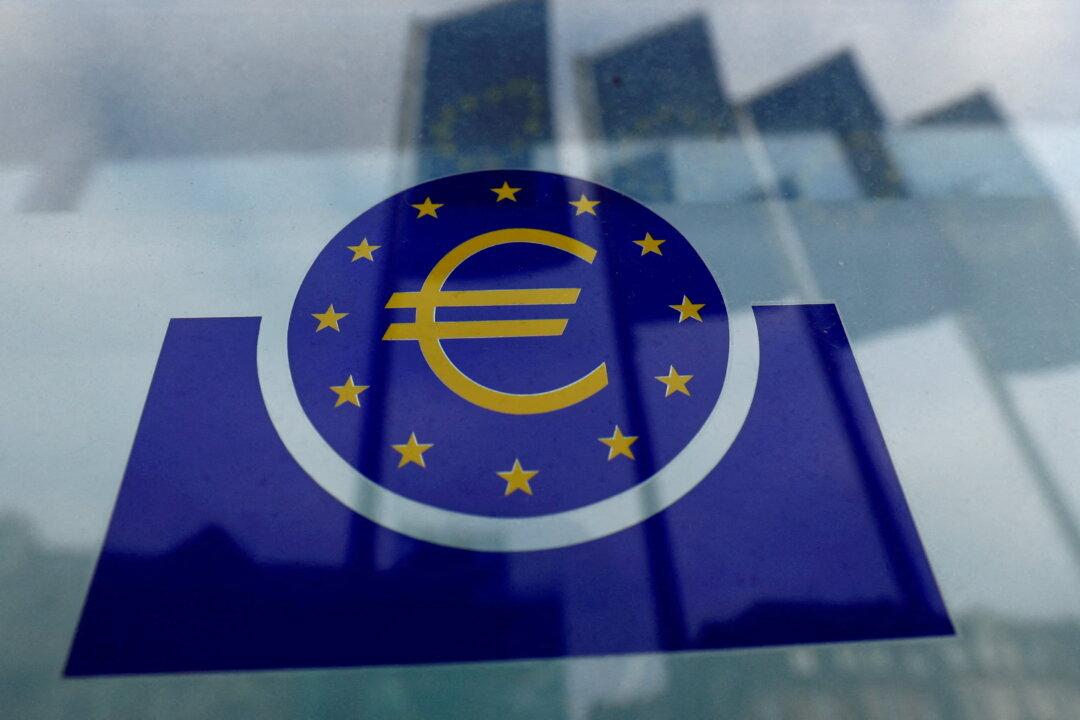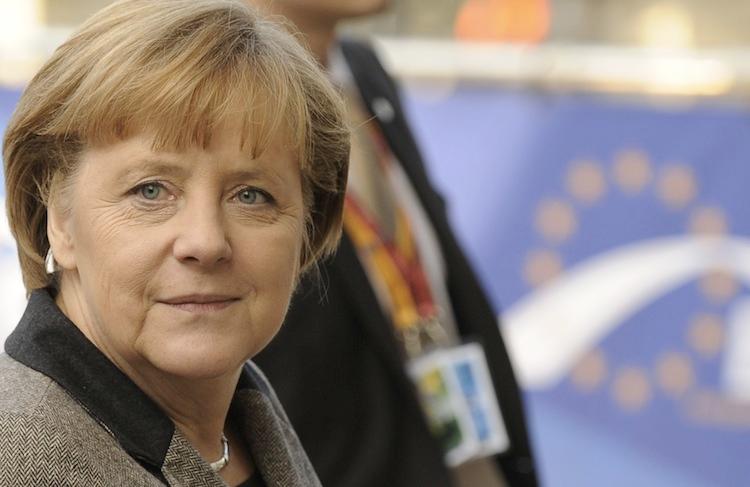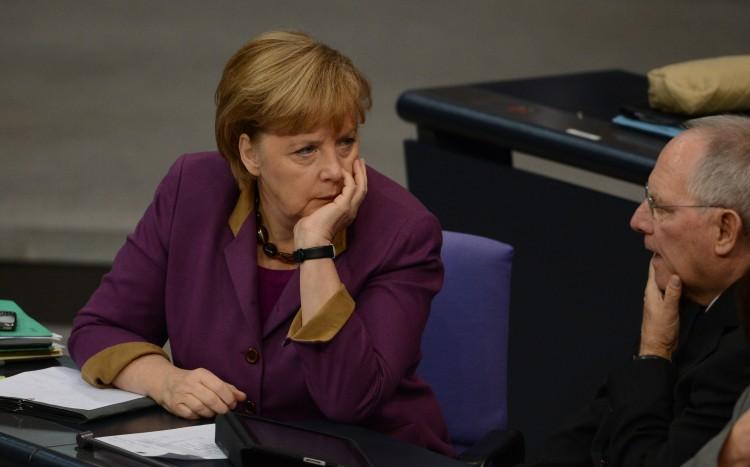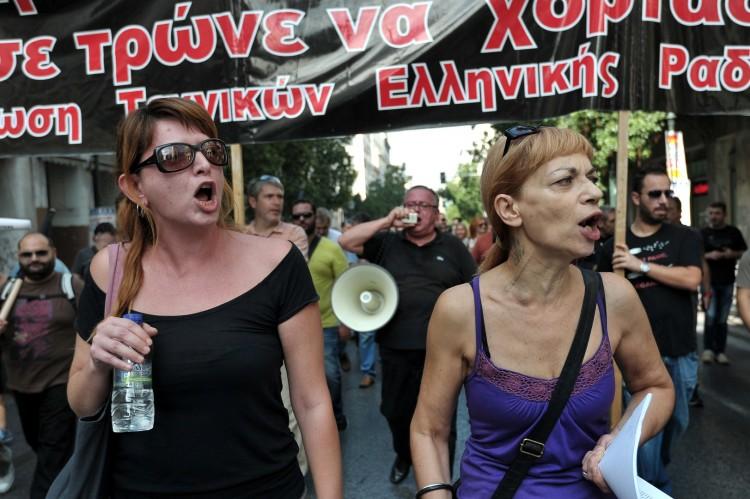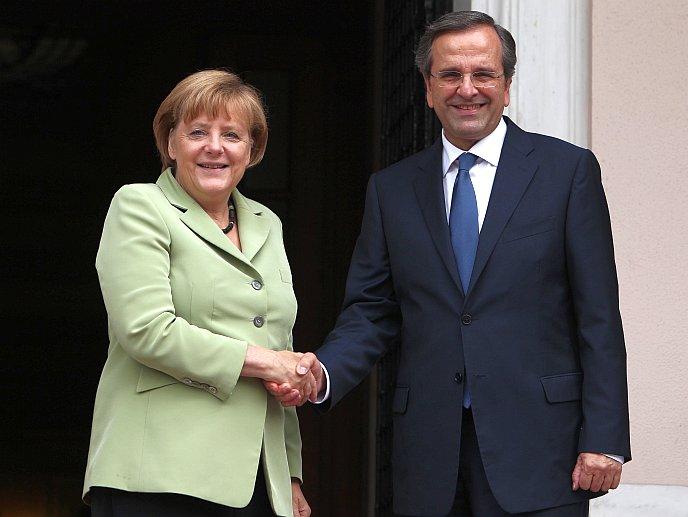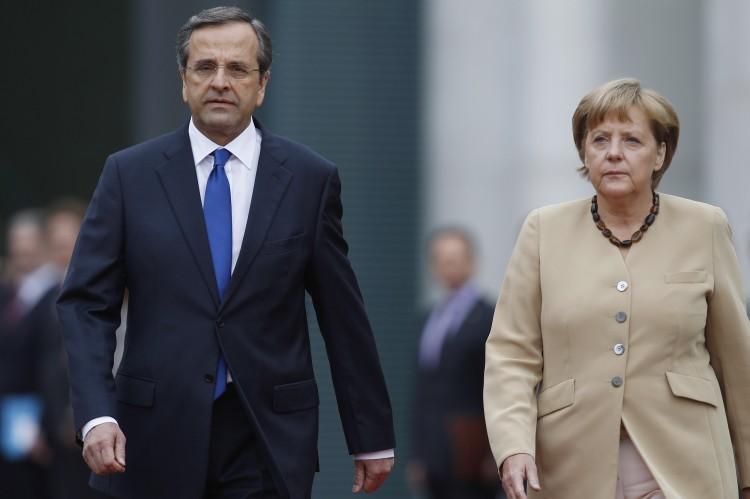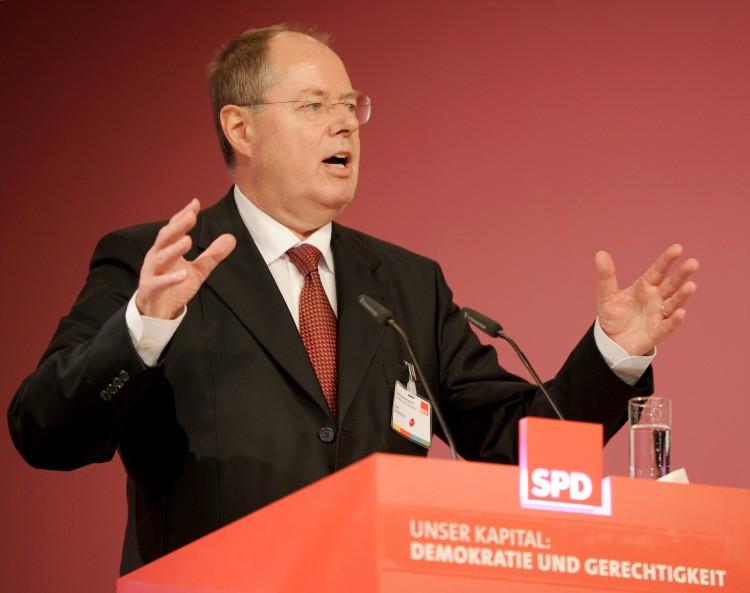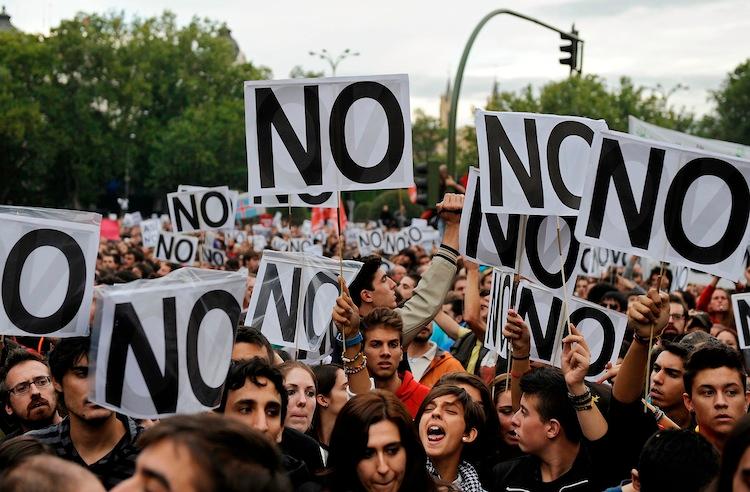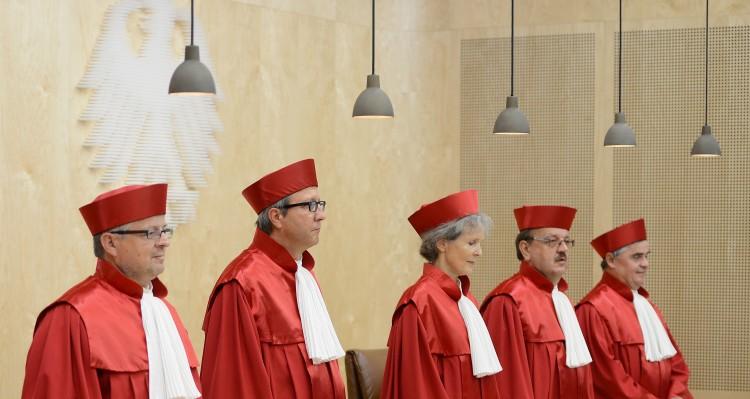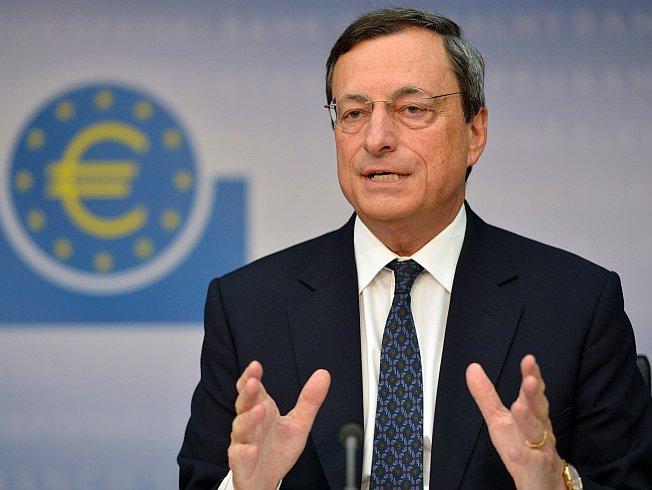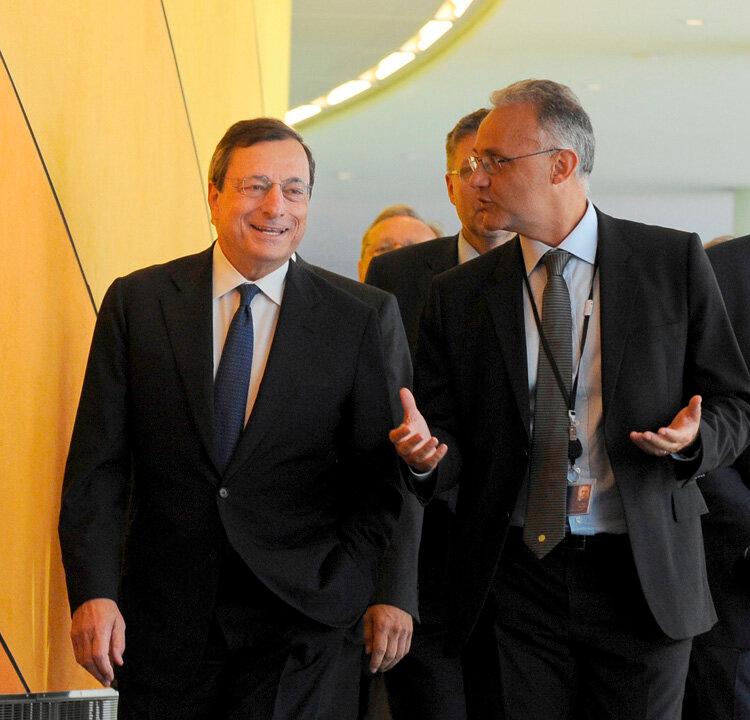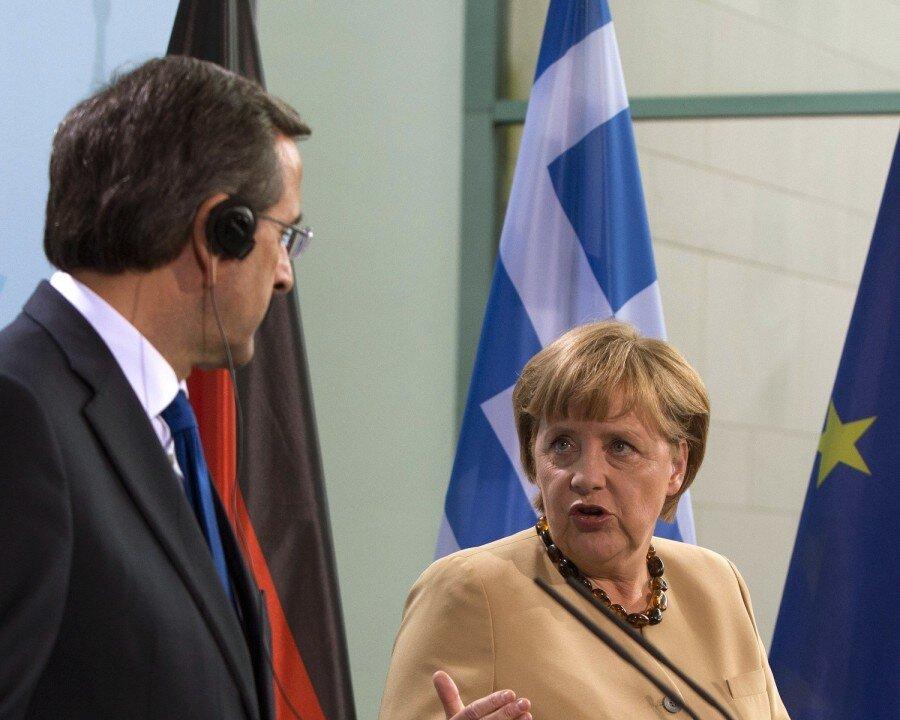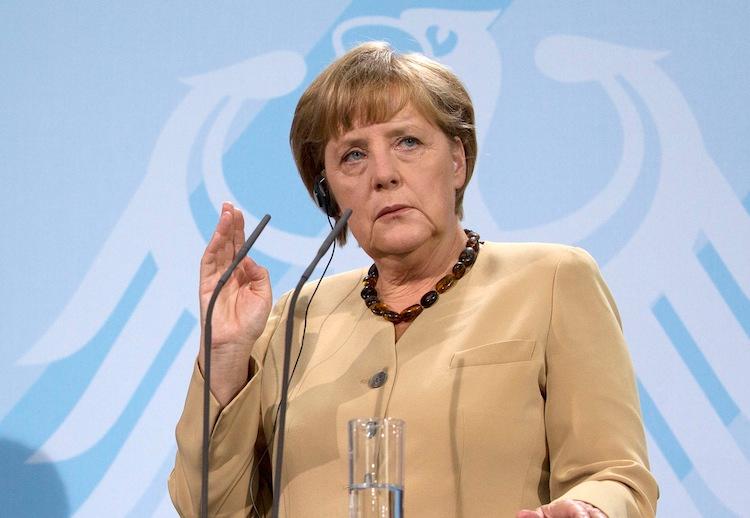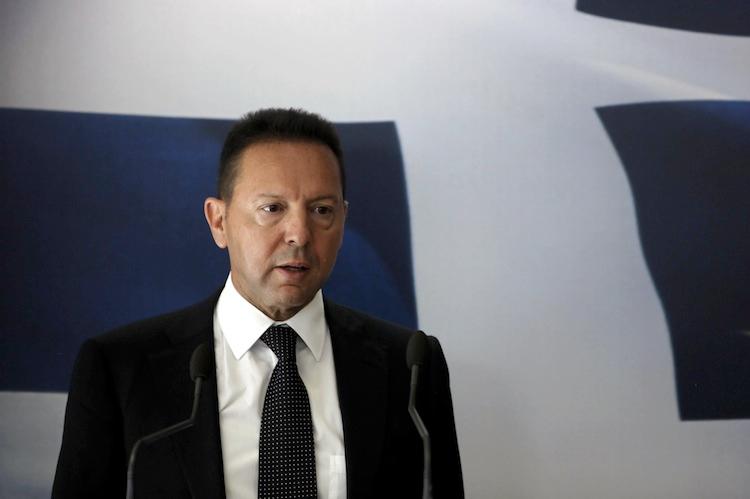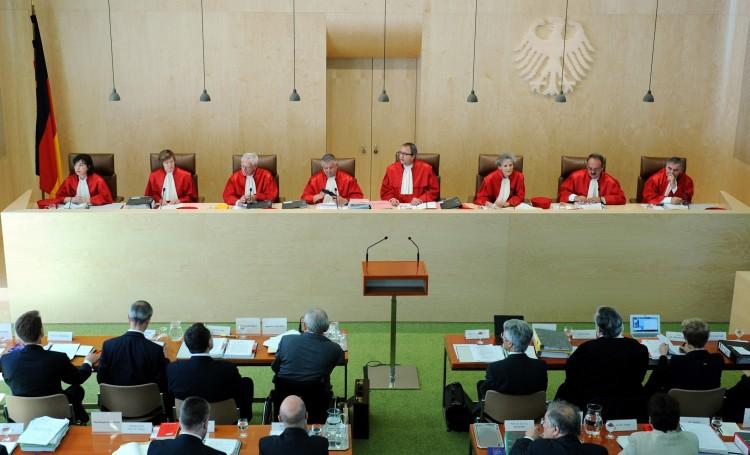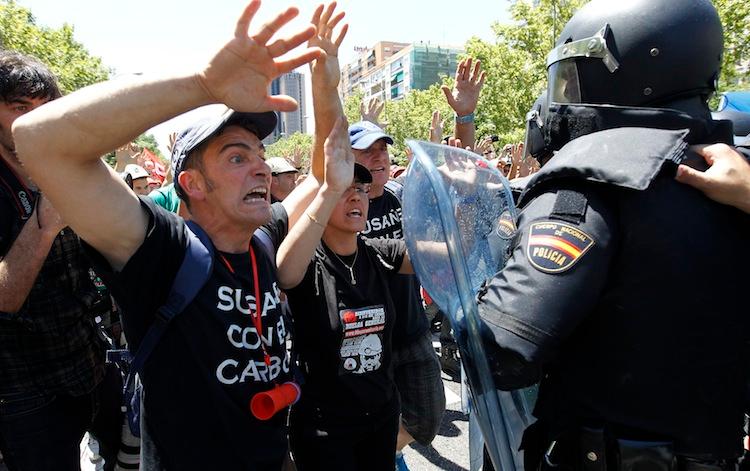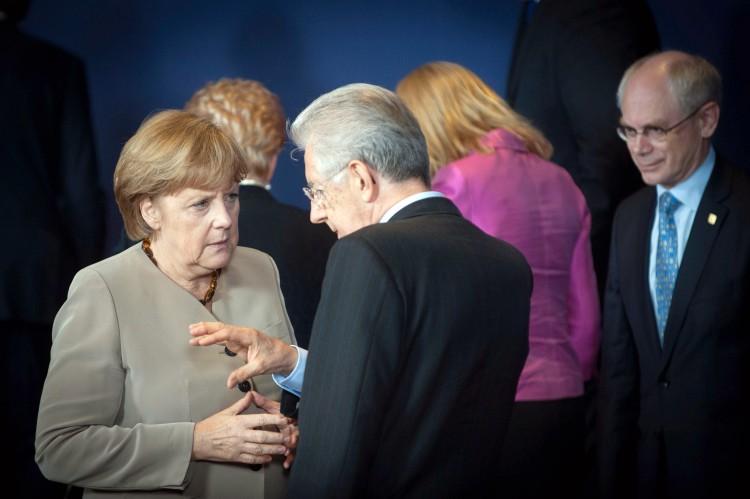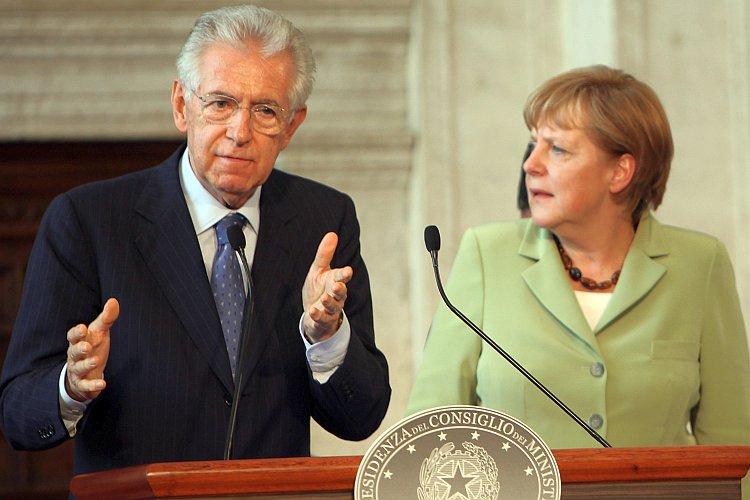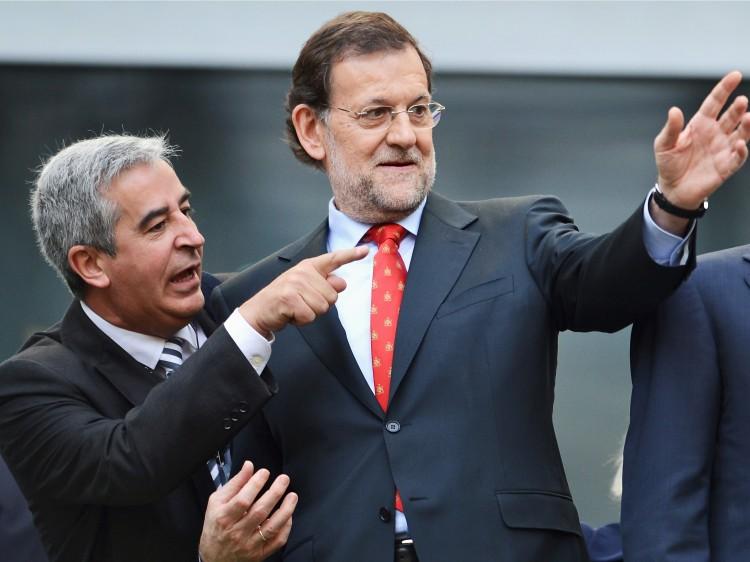Focus
EU debt crisis
LATEST
2012 & Beyond: German Elections Focus on Eurozone
Germany’s parliamentary election in the fall of 2013 will be one of the most significant events of the year in Europe
|
European Market Insight: Greek Deal Agreed, Markets Rise Modestly
After weeks of negotiations, European leaders and the International Monetary Fund agree on a solution to reduce Greek debt, at least for the time being.
|
Greece Escapes Default
Greece is on track to avoid default, having raised nearly enough money by auctioning Treasury bills Tuesday to make its debt repayment of 5 billion euros ($6.3 billion) due Friday.
|
Greek Journalist Goes on Trial for Leaked Swiss Bank Account Names
The Greek investigative journalist and publisher of Hot Doc magazine, Costas Vaxevanis, will stand trial on charges of violating private data laws.
|
Merkel Delivers Positive Message to Greece Amid Mass Protests
There was a startling difference between the political and social strata in the Greek capital of Athens Tuesday. While German Chancellor Angela Merkel was indoors calling Greece “friend and partner” and pledging support to the heavily indebted Mediterranean state, out in the streets tens of thousands of protesters were clashing with police, wanting Merkel “out.”
|
Greeks Prepare to Protest Angela Merkel’s Visit to Athens
Greek opposition parties and unions will protest German Chancellor Angela Merkel’s first visit to the crisis-plagued country.
|
Former Finance Minister To Challenge Merkel in Upcoming Election
Germany’s main opposition party announced Friday its candidate to run against incumbent Chancellor Angela Merkel in next year’s federal election.
|
Protests Erupt Outside Spanish Parliament
As many as 6,000 demonstrated Tuesday in Madrid’s Neptune Plaza in an attempt to pressure the government over austerity measures.
|
German Court Gives Go-Ahead to Euro Rescue Fund
A tense two-month wait to settle the fate of the European rescue fund ended Wednesday when Germany’s highest court declared the fund in line with the German Constitution—under certain conditions.
|
Draghi Launches Unlimited Bond Purchases by European Central Bank
Markets reacted exuberantly as the European Central Bank’s President Mario Draghi announced Thursday in Frankfurt that there will be “unlimited bond purchases” by the central bank, which oversees the common euro currency.
|
Crunch Time at European Central Bank
The European Central Bank (ECB) holds its monetary policy meeting Thursday in Frankfurt, Germany. ECB is perceived to be the only player to prevent a failure of the eurozone.
|
Greek Exit Scenarios Gaining Traction
European stock markets pulled back last week as the EURO STOXX benchmark index lost 1.5 percent but the euro currency gained 1.5 percent to 1.2516.
|
Merkel Warns of Rhetoric on Greece Euro Exit
Suggestions that Greece should leave the euro currency union drew criticism from the German government, including from Chancellor Angela Merkel, who issued a statement to members of her coalition saying that the harsh rhetoric needs to stop.
|
Greek Leaders Agreed on Basics of $14 Billion Cutbacks Plan
Greece’s coalition government said Wednesday that it agreed on a basic blueprint for what spending to cut over the next two years, for the second bailout agreement
|
European Rescue Funds Delayed by German Court
The enactment of the eurozone bailout fund has been delayed at least three more months by Germany’s constitutional court—thwarting hopes for a quick end to the European debt crisis and putting the future of Europe into further uncertainty.
|
Spain Seeks Tough Austerity Cuts Amid Protests
Spanish Prime Minister Mariano Rajoy unveiled new austerity measures to save 65 billion euros ($80 billion) over the next two years, caving in to pressure applied by the European Union to avoid a full bailout.
|
Divided Europe Discusses Deeper Integration at Summit
European leaders gathering in Brussels this week are trying to chart a course out of the quagmire of the euro crisis by looking at options for greater European integration.
|
Italy: The Next Bailout Recipient?
Will Italy be the next eurozone country in trouble to ask for a bailout?
|
European Market Insight: Markets Breathe Sigh of Relief After Greek Elections
Germany is perceived to be in the driving seat of eurozone bailout negotiations as it is the nation who is footing most of the funding support and has the strongest economy.
|
2012 & Beyond: German Elections Focus on Eurozone
Germany’s parliamentary election in the fall of 2013 will be one of the most significant events of the year in Europe
|
European Market Insight: Greek Deal Agreed, Markets Rise Modestly
After weeks of negotiations, European leaders and the International Monetary Fund agree on a solution to reduce Greek debt, at least for the time being.
|
Greece Escapes Default
Greece is on track to avoid default, having raised nearly enough money by auctioning Treasury bills Tuesday to make its debt repayment of 5 billion euros ($6.3 billion) due Friday.
|
Greek Journalist Goes on Trial for Leaked Swiss Bank Account Names
The Greek investigative journalist and publisher of Hot Doc magazine, Costas Vaxevanis, will stand trial on charges of violating private data laws.
|
Merkel Delivers Positive Message to Greece Amid Mass Protests
There was a startling difference between the political and social strata in the Greek capital of Athens Tuesday. While German Chancellor Angela Merkel was indoors calling Greece “friend and partner” and pledging support to the heavily indebted Mediterranean state, out in the streets tens of thousands of protesters were clashing with police, wanting Merkel “out.”
|
Greeks Prepare to Protest Angela Merkel’s Visit to Athens
Greek opposition parties and unions will protest German Chancellor Angela Merkel’s first visit to the crisis-plagued country.
|
Former Finance Minister To Challenge Merkel in Upcoming Election
Germany’s main opposition party announced Friday its candidate to run against incumbent Chancellor Angela Merkel in next year’s federal election.
|
Protests Erupt Outside Spanish Parliament
As many as 6,000 demonstrated Tuesday in Madrid’s Neptune Plaza in an attempt to pressure the government over austerity measures.
|
German Court Gives Go-Ahead to Euro Rescue Fund
A tense two-month wait to settle the fate of the European rescue fund ended Wednesday when Germany’s highest court declared the fund in line with the German Constitution—under certain conditions.
|
Draghi Launches Unlimited Bond Purchases by European Central Bank
Markets reacted exuberantly as the European Central Bank’s President Mario Draghi announced Thursday in Frankfurt that there will be “unlimited bond purchases” by the central bank, which oversees the common euro currency.
|
Crunch Time at European Central Bank
The European Central Bank (ECB) holds its monetary policy meeting Thursday in Frankfurt, Germany. ECB is perceived to be the only player to prevent a failure of the eurozone.
|
Greek Exit Scenarios Gaining Traction
European stock markets pulled back last week as the EURO STOXX benchmark index lost 1.5 percent but the euro currency gained 1.5 percent to 1.2516.
|
Merkel Warns of Rhetoric on Greece Euro Exit
Suggestions that Greece should leave the euro currency union drew criticism from the German government, including from Chancellor Angela Merkel, who issued a statement to members of her coalition saying that the harsh rhetoric needs to stop.
|
Greek Leaders Agreed on Basics of $14 Billion Cutbacks Plan
Greece’s coalition government said Wednesday that it agreed on a basic blueprint for what spending to cut over the next two years, for the second bailout agreement
|
European Rescue Funds Delayed by German Court
The enactment of the eurozone bailout fund has been delayed at least three more months by Germany’s constitutional court—thwarting hopes for a quick end to the European debt crisis and putting the future of Europe into further uncertainty.
|
Spain Seeks Tough Austerity Cuts Amid Protests
Spanish Prime Minister Mariano Rajoy unveiled new austerity measures to save 65 billion euros ($80 billion) over the next two years, caving in to pressure applied by the European Union to avoid a full bailout.
|
Divided Europe Discusses Deeper Integration at Summit
European leaders gathering in Brussels this week are trying to chart a course out of the quagmire of the euro crisis by looking at options for greater European integration.
|
Italy: The Next Bailout Recipient?
Will Italy be the next eurozone country in trouble to ask for a bailout?
|
European Market Insight: Markets Breathe Sigh of Relief After Greek Elections
Germany is perceived to be in the driving seat of eurozone bailout negotiations as it is the nation who is footing most of the funding support and has the strongest economy.
|

